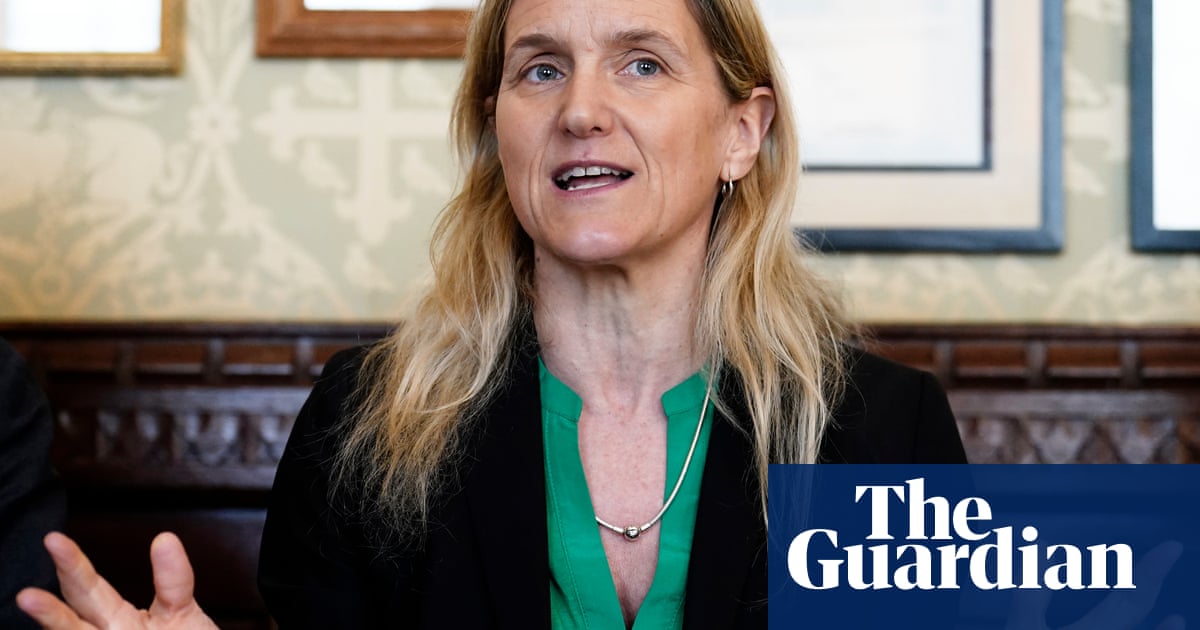At least five MPs who previously abstained on the assisted dying bill have decided to vote against it at its next stage in the commons, the Guardian understands.
The shift by a number of previously absent or undecided MPs towards voting against it has led to some concern among proponents of Kim Leadbeater’s bill, which wouldallow an assisted deathfor those with a terminal illness with less than six months to live.
MPs will debate amendments to the bill on Friday with votes likely on some key proposed changes. The Commons speaker, Lindsay Hoyle, has yet to decide how many amendments will be called and how to structure voting.
If, as expected, it takes more than one session, the bill will be debated again on 13 June, which is the earliest a crunch vote on its third reading could take place. Depending on how many amendments are pushed to a vote, this could even be pushed into a third week on 20 June.
Just two MPs – Lee Anderson and his former Reform UK colleague Rupert Lowe – have publicly declared they will change their vote at the next stage. The bill previously passed with a majority of 55.
None of the five MPs who previously did not vote and are now likely to vote against the bill at the final stage wished to be named. At least three others who voted in favour of the bill in November have said they are considering changing their vote.
However, two other MPs have moved to vote in favour of the bill, which means proponents remain reasonably confident the bill will pass.
Campaigners for assisted dying say they are concerned MPs may decide to return home to their constituencies instead of voting. Because it is a private member’s bill, it must be voted on sitting Fridays, a day when MPs are normally in their constituencies. There is no whip as the government is neutral on the bill.
Keir Starmer, who has previously been a vocal backer of the law change, will not be present this Friday for the first day of the bill’s report stage debate, because he will be at the European Political Community summit in Albania.
One MP backing the bill said they did not expect considerable numbers of people changing their minds. “The concern is getting people to stay around,” they said. “The main issue is ennui,” another MP backing the bill said.
The numbers of ethnic minority MPs who are voting against the bill had been influential, according to MPs. One said there were only two MPs in the BAME Labour group who were voting in favour.
On Tuesday, in a gesture to MPs who are voting against the bill, Leadbeater urged them to back an amendment that would commission a new assessment on the state of palliative care, a move first proposed by the bill’s opponents.
Leadbeater said that she understood the concern about the quality of care for terminally ill people and said she believed that improving palliative services should not be in competition with assisted dying.
She announced herbacking for the amendment– which has not yet been chosen by the speaker – after a meeting with the chief executive of the cancer care charity Marie Curie. The amendment is authored by the Liberal Democrat MP, Munira Wilson, and 21 others who have previously voted against it.
Sign up toHeadlines UK
Get the day’s headlines and highlights emailed direct to you every morning
after newsletter promotion
A number of changes were made to the bill during its committee stage, including the removal of the approval of a high court judge to be replaced with a panel of experts.
The health secretary, Wes Streeting, who is opposed to the bill, has said in the past he is concerned that the NHS is not fit to cope with the change and that he is worried people would choose to hasten their deaths because of the current state of the healthcare service.
The amendment says that the government must undertake “an assessment of the availability, quality and distribution of appropriate health services to persons with palliative and end of life care needs.” It says that should be made at the earliest opportunity in the reporting on the implementation of the legislation.
Leadbeater said that while she could not influence the selection of amendments, she hoped that MPs would back that change if they were given the chance. “I agree with Marie Curie that everything possible should be done to strengthen and extend the provision of palliative care services,” she said.
She said the charity had “made the point that the case for improved palliative care is not in competition with the idea of allowing an assisted death in certain, very tightly drawn circumstances and I agree.
“While I cannot pre-empt the decision of the speaker about which amendments to select for debate, I would encourage colleagues in parliament to support this amendment, if and when it is put to a vote.”
The bill would allow an assisted death for those inEnglandand Wales with a terminal illness with less than six months to live, needing the approval of two doctors and a panel including a specialist lawyer, social worker and psychiatrist.
Other amendments proposed by MPs that are gathering support include a prohibition on doctors from raising the prospect of an assisted death with patients and a specialist carve-out for eating disorders such as anorexia, which MPs have voiced fears could be considered a terminal illness in some cases.
